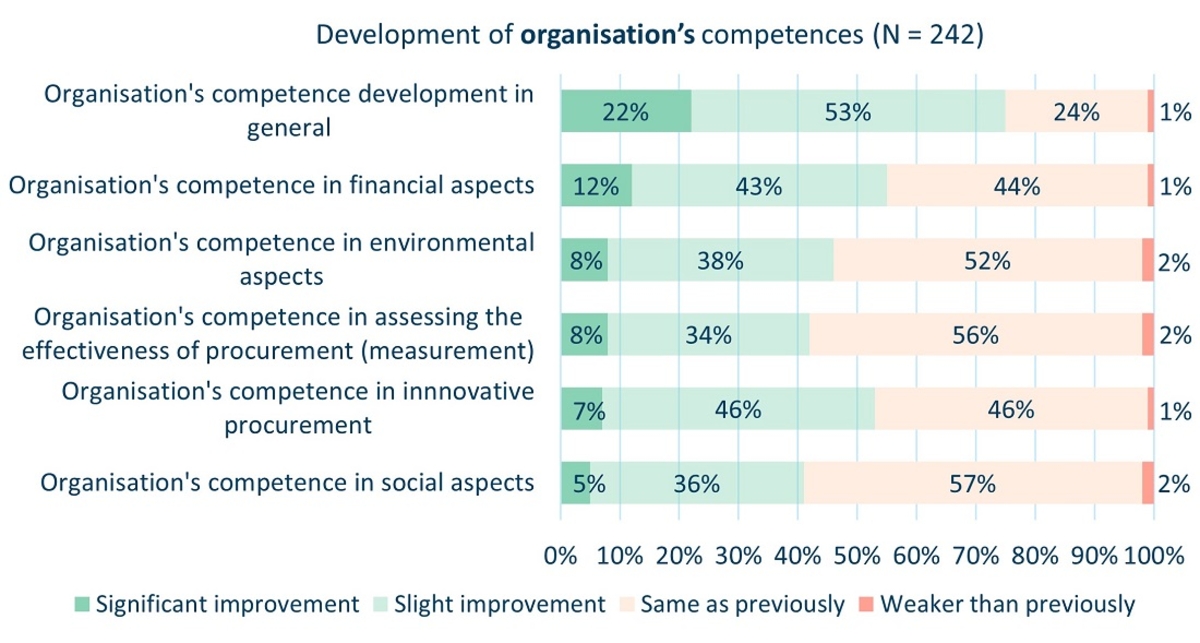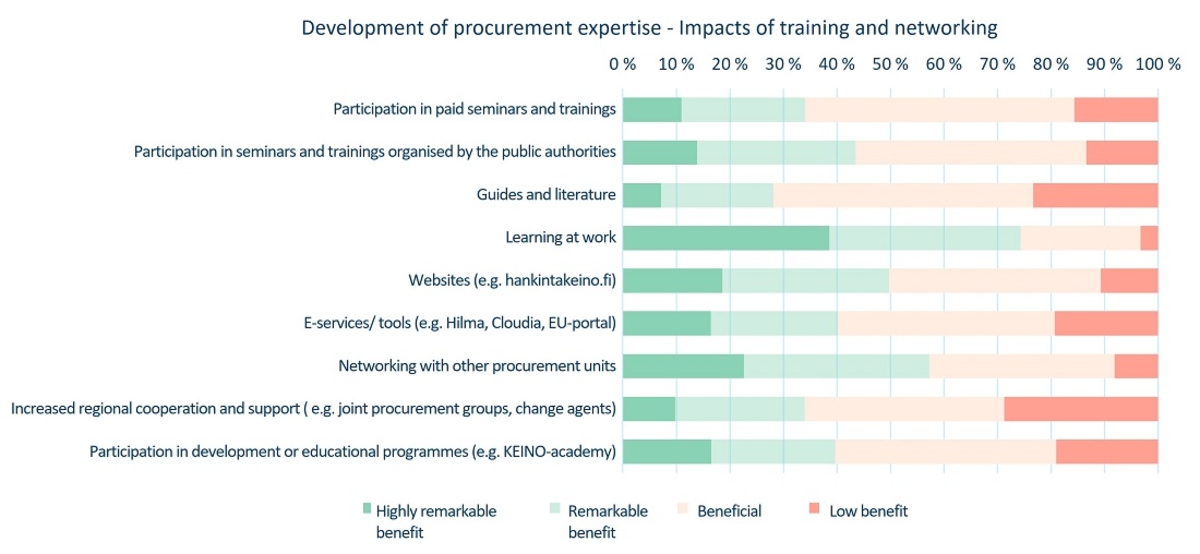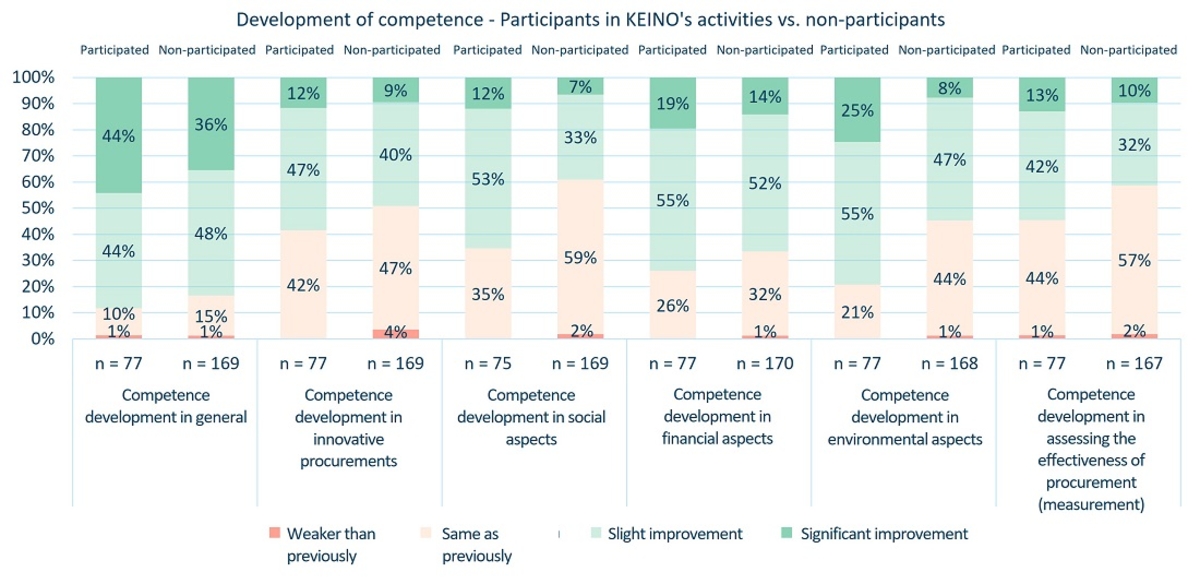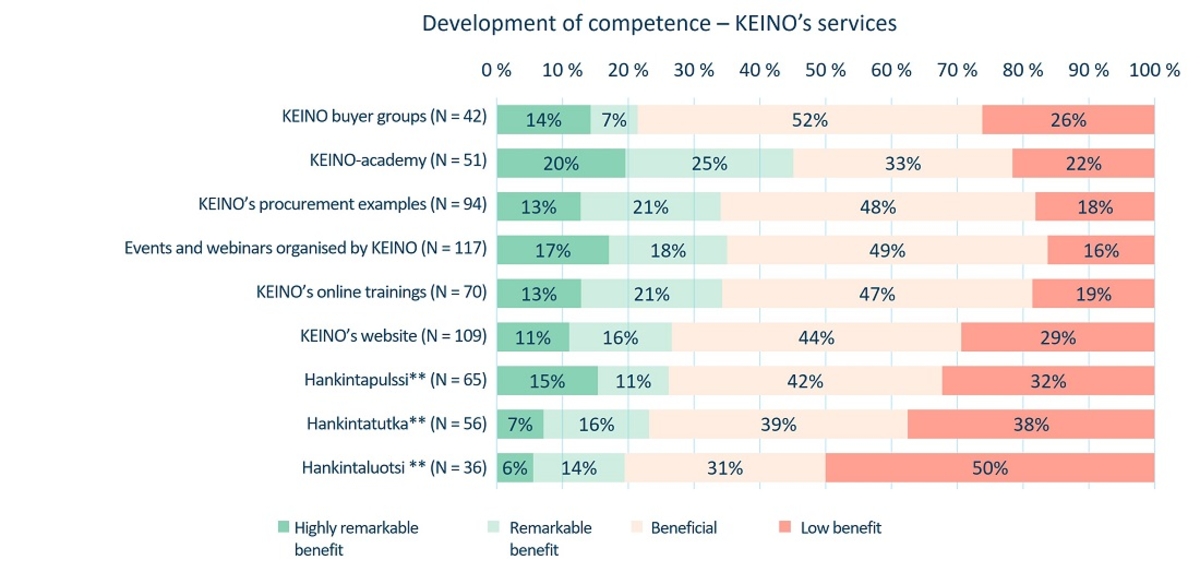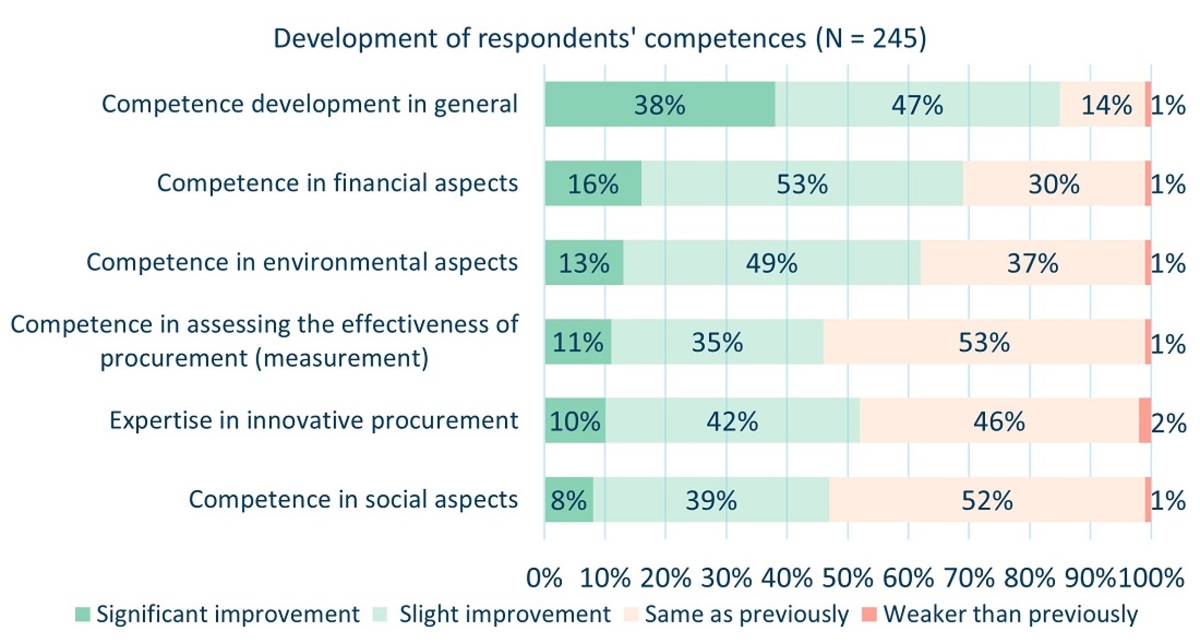
Level of competence in 2020
In 2020 KEINO conducted a survey, which was used to map the state of procurement competence for sustainable and innovative public procurement in Finland. The survey was carried out with the VN TEAS project/ ”Hankinta-Suomi” i.e. Procurement Finland Programme*.
The first part of the survey focused on the procurement units' readiness to use information. This section was related to Hankinta-Suomi's "Public procurement - total volume and utilization of data" report, which was carried out by VN TEAS.
The second part of the survey investigated the development of procurement units' competence in sustainable and innovative public procurement during the last two years. This was related to the follow-up of the competence survey carried out by the KEINO in 2018. The section asked for the respondent's evaluations of both their personal and their organization's competence development in the areas of sustainable and innovative procurements.
Respondents' background information
A total of 249 responses were received. Most of the respondents, 57 %, worked in municipalities, cities, joint municipal authorities or municipal limited liability companies. 31% of the respondents worked for the state. 12% of the respondents worked in parishes and others, such as independent educational institutions.
About half of the respondents (53%) make procurements as a full-time job and just under half (42%) in addition to their own work. Only 5% of respondents make procurements in some other ways.
The level of procurement expertise/ competence
Respondents were asked about the development of their own and the organization's procurement competence over the past two years, both in general and in the following themes:
- competence in financial aspects
- competence in environmental aspects
- competence in assessing the effectiveness of procurement (measurement)
- competence in innovative procurements
- competence in social aspects.
85 % of respondents estimated that their own skills had improved in the last two years.
75% of the respondents estimated that the competence of the organisation they represent has developed over the past two years. In general, respondents estimated that the development of the organisation's competence was not as significant as the development of personal competence. The organisation's competence has developed most in taking environmental aspects into account.
Impacts of training and networking
When looking only at those who have used KEINO's services, learning at work, networking with other procurement units and websites have been identified as the main factors behind the development of procurement expertise.
KEINO's impact on competence development
About 78 % of the respondents were familiar with the KEINO competence center and 31 % of all respondents have also participated in KEINO's activities. 22 % of respondents didn't know what the KEINO competence center is.
The following table examines those who participated in KEINO's activities and those who did not. It should be noted that those who have used KEINO's website or procurement examples are not counted as participants in KEINO's activities in this case.
KEINO's participants estimated that both their own and their organization's competences have developed more than those who have not participated in KEINO's activities. In particular, the consideration of social aspects and aspects related to the environment is at a clearly better level among those who have participated in KEINO's activities. There has been the least development in the competence of measurement of procurement effectiveness.
Development of competence and KEINO's services
Based on the results, the greatest benefit has come from the KEINO-academy. Events and webinars, KEINO's procurement examples and websites are also useful according to the respondents. There are not enough respondents who have used electronic tools (Hankintapulsi, Hankintatutka and Hankintaluotsi), so it is not possible to make an assessment of their usefulness.
